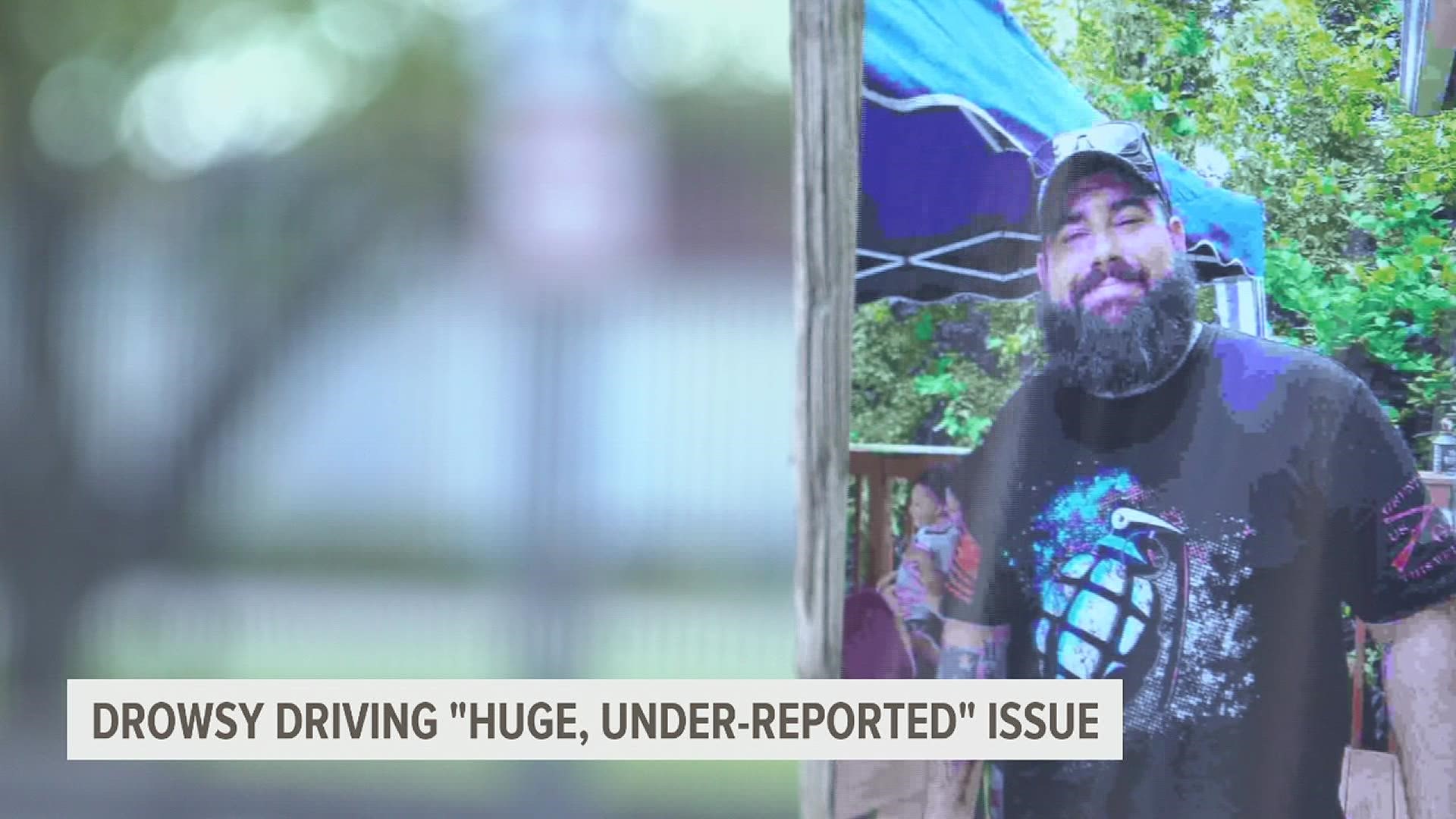HARRISBURG, Pa. — The morning of May 14, 2020 started differently for Joshua Bishop, and that was by design.
His job doing traffic control for Wright Contracting in York County allowed him to work in a different location every day. As a 12-year veteran of the United States Army, serving in tours in Iraq and Afghanistan, Bishop was used to moving around.
He suffered from post-traumatic stress disorder when he returned home. When he got the job with Wright in the fall of 2019, it represented his first stable work that he enjoyed since coming home.
"He got to work pretty independently, or with a couple guys at a time," his wife Phyllicia said. "He wasn’t too fond of big crowds."
On this Thursday, at least in this moment, Josh was alone. He was setting up traffic cones outside the York Fairgrounds along Carlisle Avenue in West Manchester Township. He was looking for something in the trunk of his SUV, his back turned to the road.
He never saw the car speeding his way.
Bishop was struck and killed, pinned to the back of his vehicle. The driver, Aaron D. Miller of York, told police he had fallen asleep. West Manchester Township Police say Miller was driving 36.7 miles per hour at the moment of impact, and had no recollection of hitting anyone.
Miller is facing charges of vehicular homicide, involuntary manslaughter, reckless driving, and careless driving. He has pleaded not guilty, and a trial is expected to begin in February.
However, if a jury finds him guilty, that does not mean he'll serve a lengthy sentence.
"In very few of those cases that don't involve [driving under the influence charges]...do the defendants do jail time at all," Gregg Freeburn, a personal injury lawyer in Harrisburg said.
According to Joshua's widow, Phyllicia, the York County prosecutors told her they'd push for anywhere between nine and 18 months in prison with a conviction.
A CDC study estimated that if someone gets behind the wheel of a car having not slept in 18 hours, it's similar to having a blood alcohol level of 0.05%. Being awake for 24 hours makes the response time more like someone driving with a BAC of 0.10%, or above the legal limit.
Yet, in Pennsylvania, drowsy driving is not penalized the same as drunk driving.
Charges of vehicular homicide or involuntary manslaughter could lead to jail time. However, a careless driving charge will only run those convicted of a $500 fine, even in death, and reckless driving charges could cost $200, according to Pennsylvania law statutes.
Neither statute mentions drowsy or fatigued driving.
Statistics show drowsy or asleep driving fatalities are among the lowest in Pennsylvania, according to PennDOT. In 2020, there were 11 deaths attributed to sleepy drivers, which only accounts for 1% of the 1,129 traffic-related deaths in the Commonwealth.
Nationally, the National Highway Traffic Safety Administration (NHTSA) estimates around 1,500 people are killed every year as a result of drowsy driving.
However, traffic experts say those statistics are misleading. Among the other categories where roadside deaths occur are "lane departure crashes," "single vehicle run-off-the-road crashes," and "impaired driver crashes," all of which could have been done by someone who fell asleep at the wheel.
Even in the case of Joshua Bishop's death, his crash would fall under "work zone crashes."
"It's a huge problem, underreported, and we have to do more to educate people in the public about the importance of sleep," Pam Shadel Fischer, spokesperson for the Governors Highway Safety Association (GHSA) said.
In 2016, Shadel Fischer wrote a report for the GHSA titled "Wake Up Call: Understanding Drowsy Driving and What States Can Do." At the time, and still to this day, only New Jersey and Arkansas have laws which specificially penalize drivers who cause a crash while asleep or drowsy at the wheel of a car.
In the report, she used statistics from the National Sleep Foundation to estimate that 31.5% of drivers admitted to driving a car while fatigued over a 30-day span. The report also estimates the number of nationwide fatalities to be closer to 6,400, rather than the 1,500 estimated by NHTSA.
She says one of the reasons drowsy driving goes underreported is because police need better training on how to spot a sleepy driver.
"When you go through training to become a police officer, there is a lot you are going through," Fischer said. "Is drowsy driving one of the areas you're going to focus on? No, it's not."
Local police tend to agree. In fact, most police departments do not necessarily train to spot sleepy drivers, so much as they are looking for possible DUI cases.
Officer Anthony Glass, a DUI expert with the Swatara Township Police Department in Dauphin County, says the signs that someone might be drunk mimics the signs they are falling asleep, and vice versa.
"Even though those indicators are the same, one path is going to lead to an arrest and the other is going to, at most, lead to a traffic citation," he said.
He says it happens at least once a night where he pulls someone over he suspects of driving under the influence, and instead it's just someone too tired to drive.
However, there are no laws penalizing that driver, or deterring that driver further from continuing to drive. That is where Phyllicia Bishop is looking to change state law.
Citing the laws in New Jersey and Arkansas, Bishop has tried speaking to her state representatives in Harrisburg about drafting a bill which would lead to more severe punishments for drivers who cause crashes while drowsy or asleep. Yet so far, she has not gotten anyone to take her up on the request.
"I have children who missed their dad on their first day of school," she said. "Betti (Joshua's daughter) will get married without her father walking her down the aisle. I just don't want this to happen to another family with small children or anybody."

